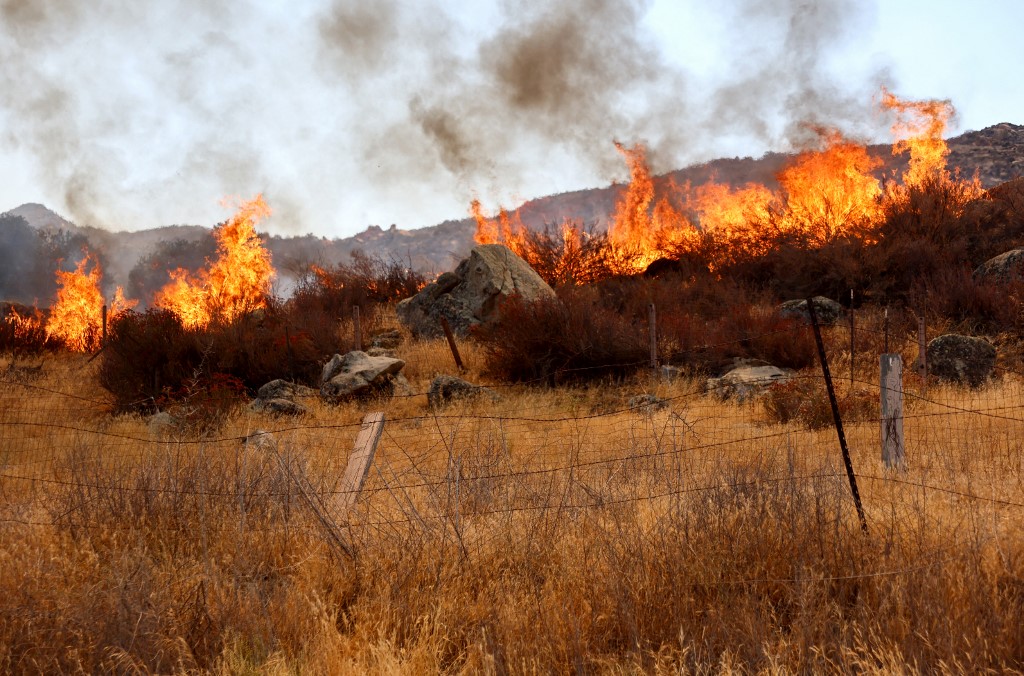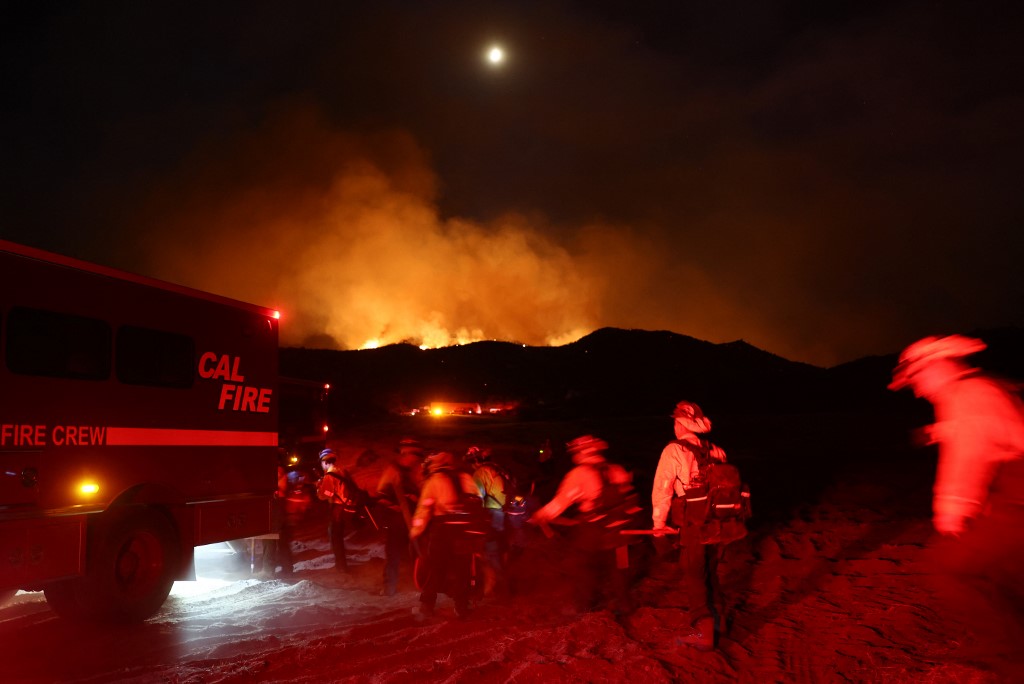
by Huw GRIFFITH
Agence France-Presse
LOS ANGELES, United States (AFP) — At least two people are dead and thousands have been ordered to flee a rapidly spreading fire in California, with the region’s oppressive heatwave expected to peak Tuesday.
Several buildings were destroyed as the Fairview fire erupted southeast of Los Angeles, racing to consume 2,400 acres (1,000 hectares) in less than 24 hours.
Firefighters said two people were known to have died in the blaze, and one person had been hospitalized with burn injuries.
More than 3,000 homes are under orders to evacuate, and all local schools have been shuttered.
The blaze was “spreading very quickly before firefighters even got on scene,” a local fire department spokesman said on Twitter.
The cause of the fire was under investigation, but utility Southern California Edison (SCE) reported what it called “circuit activity” in the area at the time the blaze broke out.
The company has in the past paid out billions of dollars after its equipment was found to be the cause of wildfires in California, including a number of fatal incidents.
SCE has embarked on a lengthy process of shoring up ageing power lines, chopping back nearby vegetation and burying cables in an effort to reduce fires.
California is suffering through a ferocious heatwave, with temperatures of 110 Fahrenheit (43 Celsius) being recorded daily in several areas.
That, coupled with a two-decade drought that has left the countryside tinder dry, is creating ideal conditions for explosive wildfires.
The heat hit the state, as well as parts of neighboring Arizona and Nevada, last week, and forecasters said it was not over yet.
“Following another day of record heat on Tuesday from California to the central High Plains, expect sizzling temperatures to stick around through mid-week,” the National Weather Service said.
“Numerous daily record high temps are likely to be broken from the northern Rockies and High Plains on south to southern California.”

– Outages –
With demand for air conditioning high, grid conductor California Independent System Operator (ISO) issued an urgent call Tuesday for households to cut back on power use, and warning them to be ready for outages.
The body has asked consumers to save electricity every day for much of the last week between 4:00 pm and 9:00 pm when demand is high and supply is falling.
But with temperatures exceptionally high Tuesday, it warned there could be a shortfall leading to brown-outs.
“Electricity demand is currently forecast at more than 52,000 megawatts (MW), a new historic all-time high for the grid,” California ISO said.
“As the state faces the hottest day in this prolonged, record-breaking heat wave, grid conditions are expected to worsen.
“If needed, ISO could order utilities to begin rotating power outages to maintain stability of the electric grid.”
California has abundant solar installations, including on homes, which typically provide for around a third of the state’s power requirements during daylight.
But when the sun goes down, that supply falls quickly, leaving traditional generation to plug the gap. The problem is particularly acute in the early evening when temperatures are still high, but solar starts dropping out of the power mix.
Scientists say global warming, which is being driven chiefly by humanity’s unchecked burning of fossil fuels, is making natural weather variations more extreme.
Heat waves are getting hotter and more intense, while storms are getting wetter and, in many cases, more dangerous.
© Agence France-Presse







